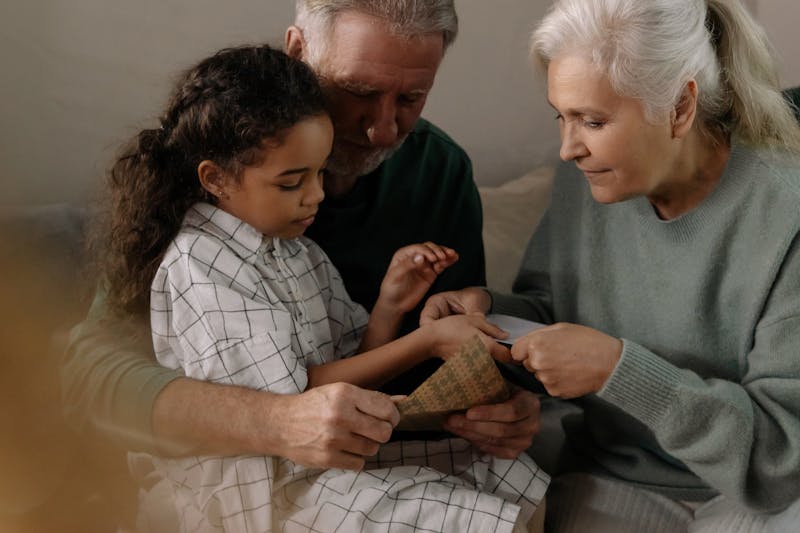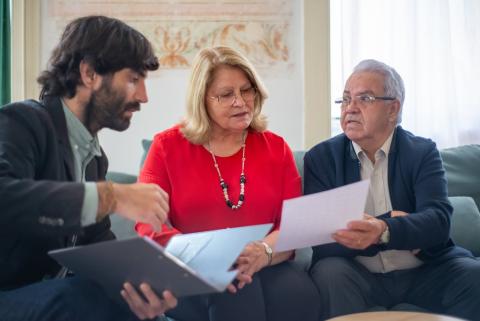When it comes to New York grandparents’ rights, many seniors want to know how they can stay connected with their grandchildren.
Family dynamics can change, and sometimes grandparents find themselves needing legal options to maintain that special bond.
This article explains grandparents’ rights in New York in a clear and simple way, so you can understand your options.
What Are Grandparents’ Rights in New York?
In New York, grandparents’ rights refer to the legal ability to seek visitation or custody of your grandchildren under certain conditions.
The law recognizes the important role grandparents play in a child’s life. However, these rights are not automatic. You may need to go to court to request visitation or custody.
New York courts focus on what is best for the child. If you want to pursue New York grandparents’ rights, you must show that spending time with you benefits your grandchild. The court also considers your existing relationship with the child and the parents’ situation.
When Can Grandparents Seek Visitation?
You may be able to seek visitation if one of these situations applies:
- One or both parents have passed away. If a parent is no longer alive, the court may grant visitation to maintain the child’s connection with you.
- The parents are divorced or separated. Family changes like divorce can open the door for grandparents to request visitation.
- There’s a significant existing relationship. If you’ve been a big part of your grandchild’s life, the court may see this as a reason to allow visitation.
To move forward, you’ll need to file a petition in family court. It’s helpful to have a lawyer who understands New York grandparents’ rights to guide you.
The court will look at your relationship with your grandchild and decide what’s in their best interest.
Can Grandparents Seek Custody?
In some cases, grandparents can ask for custody instead of just visitation. This might happen if:
- The parents are unable to care for the child due to issues like substance abuse or neglect.
- The child is already living with you and you’ve been their primary caregiver.
Custody cases are more complex than visitation. You’ll need to prove that the parents are unfit or that living with you is best for the child. A lawyer can help you gather evidence and present your case.
Steps to Take in New York
If you’re considering pursuing New York grandparents’ rights, here are some steps to follow:
- Talk to the parents first. If possible, try to work things out with your grandchild’s parents. A calm conversation might avoid the need for court.
- Consult a lawyer. A family law attorney can explain your options and help you file a petition.
- File a petition in family court. This is the legal step to request visitation or custody.
- Attend a court hearing. Be ready to explain why spending time with you is good for your grandchild.
Having documents, like photos or messages showing your bond with your grandchild, can help your case.
Things to Keep in Mind
Courts in New York prioritize the child’s well-being. They may not grant visitation or custody if the parents object and have valid reasons.
For example, if both parents are actively involved and don’t agree to visitation, it can be harder to win your case. Be prepared for an emotional process, and consider seeking support from friends or a counselor.
Resources for Grandparents
You don’t have to navigate this alone. In New York, there are resources to help seniors understand their rights:
- Legal Aid Organizations. Some groups offer free or low-cost legal advice for seniors.
- Family Court Self-Help Centers. These centers provide forms and guidance for filing petitions.
- Support Groups. Connecting with other grandparents can offer emotional support and practical tips.
Check with your local senior center or online resources for more information.
Final Thoughts on New York Grandparents’ Rights
Pursuing New York grandparents’ rights can feel overwhelming, but it’s a step toward staying connected with your grandchildren.
Read Also:
By understanding the law and taking the right steps, you can make a strong case for visitation or custody.
Talk to a lawyer, gather your evidence, and focus on what’s best for your grandchild. With patience and effort, you can maintain that precious bond.











